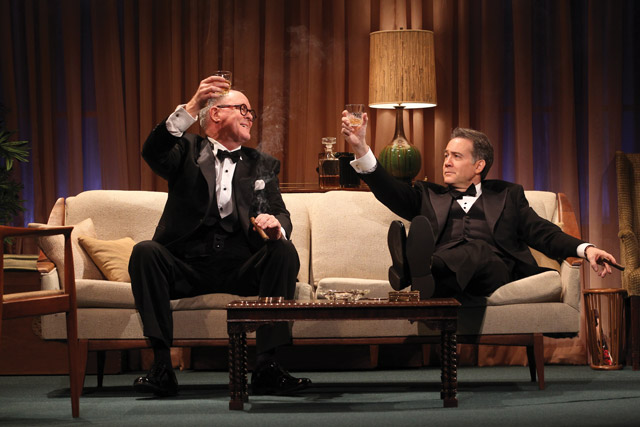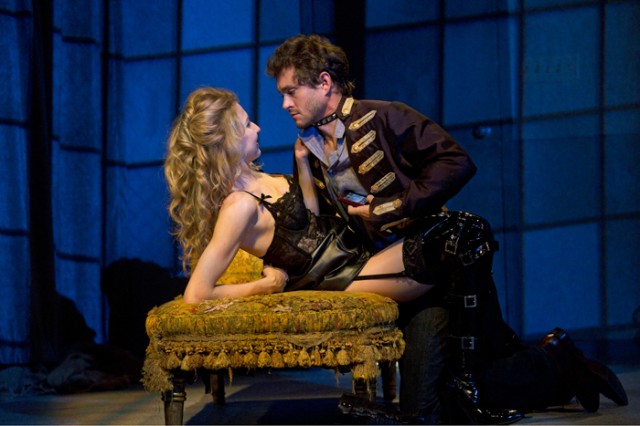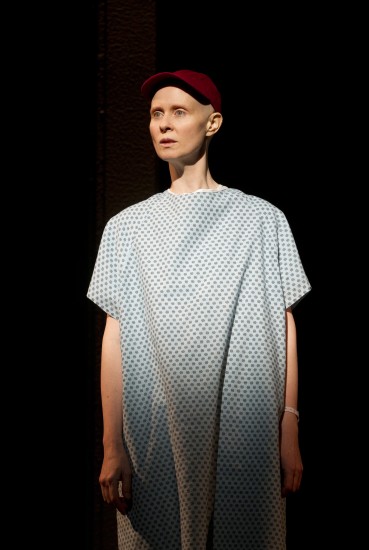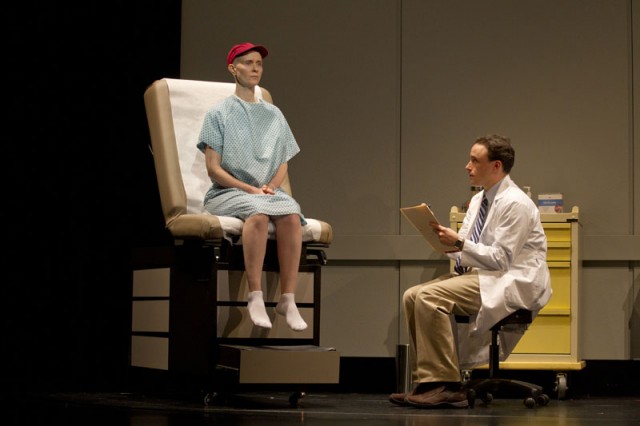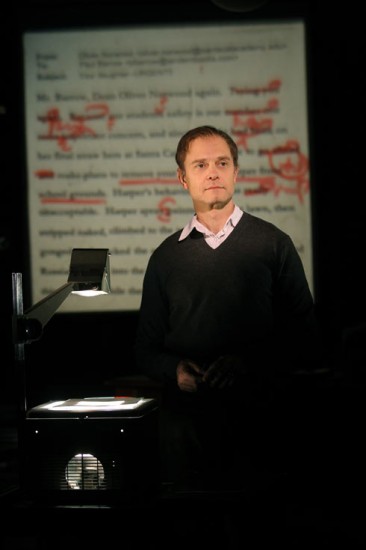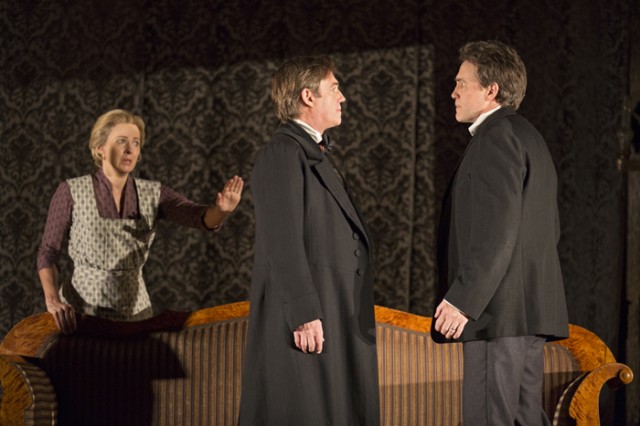
Richard Thomas and Boyd Gaines star as brothers at odds in Broadway revival of Ibsen’s AN ENEMY OF THE PEOPLE (photo by Joan Marcus)
Manhattan Theatre Club at the Samuel J. Friedman Theatre
261 West 47th St. between Broadway & Eighth Aves.
Tuesday – Sunday through November 11, $67-$120
www.anenemyofthepeoplebroadway.com
When Dr. Thomas Stockmann (four-time Tony winner Boyd Gaines) discovers that the water in the baths of his spa town is dangerously contaminated, he thinks he will be celebrated as a hero, a supreme protector of the public health. But he is shocked when his brother, Peter (Emmy winner Richard Thomas), the mayor, decides to cover up the findings, more interested in ensuring the future financial success of the small Norwegian coastal town than in saving lives, setting off an all-too-familiar battle between the government and the individual, the public welfare versus corporate greed, the rich against the poor, and the role of the media in the controversy. Written in 1882 by Henrik Ibsen, An Enemy of the People is now running at the Samuel J. Friedman Theatre in a streamlined, hackneyed adaptation by British playwright Rebecca Lenkiewicz (The Night Season) that attempts to be relevant to modern-day concerns but instead, after a somewhat promising first act, falls flat on its clichéd bottom. Gaines is strong as the determined yet conceited doctor, refusing to believe that the truth will get buried, but Thomas is far too weaselly as the mayor, strutting about like Snidely Whiplash in his top hat, cape, and cane. Doug Hughes’s flaccid direction turns the proceedings into a ridiculous series of overblown, pedantic scenes that culminates in a cringe-inducing town meeting in which everyone piles on the good doctor.
Following 1878’s A Doll’s House and 1881’s Ghosts, Ibsen continued his scathing indictment of various aspects of contemporary society in An Enemy of the People, but it is not one of his better plays, as evidenced by how infrequently it turns up in major productions onstage and onscreen; in 1950, Arthur Miller’s adaptation ran on Broadway with Fredric March and Morris Carnovsky, and a little-seen 1978 film starred Steve McQueen and Charles Durning. This 2012 version also features Kathleen McNenny as the doctor’s wife, Catherine; Maïté Alina as their idealistic daughter, Petra; John Procaccino as newspaper publisher Hovstad; and Gerry Bamman as Aslaksen the printer, whose constant calls for “restraint” grow as tiresome as the production’s overwrought political statements. Lenkiewicz’s An Enemy of the People can’t decide whether it’s an ironic black comedy or a serious treatise on power and corruption, winding up as neither.
